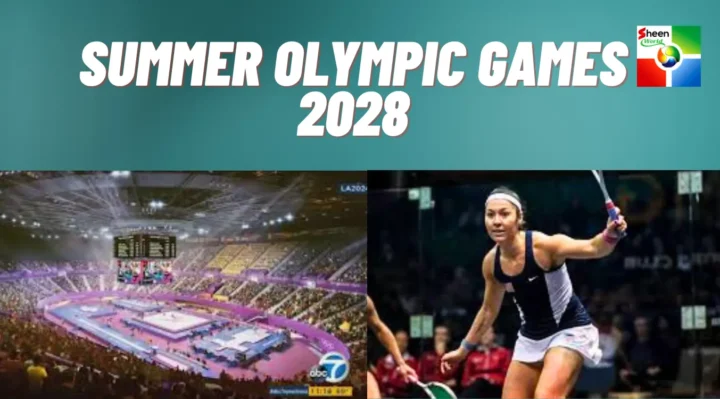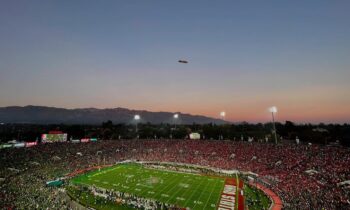
At a Glance Olympic Games 2028
The Summer Olympic Games 2028 are poised to be a landmark event in the world of sports, returning to Los Angeles for the third time. As excitement builds for this global celebration of athletic prowess, this blog will explore the various facets of the upcoming Games, including their history, preparations, anticipated events, economic impact, and cultural significance.
The Historical Context of the Summer Olympic Games
The Legacy of the Olympics
The Summer Olympic Games have a rich history that dates back to ancient Greece. The modern incarnation of the Games has evolved significantly since its revival in 1896, becoming a symbol of international unity and sporting excellence.
The Birth of Modern Olympics
The first modern Olympic Games took place in Athens, Greece, in 1896, featuring 13 nations and 43 events. The revival was spearheaded by Pierre de Coubertin, who believed in the importance of physical education and international cooperation.
Los Angeles’ Olympic Legacy
Los Angeles previously hosted the Olympics in 1932 and 1984, each time leaving a unique mark on the city and the Games themselves. The 1984 Olympics are particularly notable for introducing corporate sponsorship and a self-sustaining model that has since influenced how the Olympics are organized.
The Road to the Summer Olympic Games 2028
Winning the Bid
In 2017, Los Angeles was awarded the 2028 Summer Olympics in a unique arrangement with the International Olympic Committee (IOC) that also designated Paris to host the 2024 Games.
The Bidding Process
The bidding process was highly competitive, with Los Angeles showcasing its existing infrastructure, experience, and commitment to sustainability. The city’s ability to leverage its existing venues played a crucial role in winning the bid.
A Vision for the Future
The Los Angeles Organizing Committee emphasized a vision that focuses on legacy, sustainability, and community engagement, aiming to create a lasting positive impact.
Key Features of the Summer Olympic Games 2028
Sports and Events
The Summer Olympic Games 2028 will feature a diverse array of sports, highlighting both traditional Olympic events and newer additions that appeal to younger audiences.
Core Sports
Classic Olympic sports such as athletics, swimming, gymnastics, and basketball will dominate the schedule, showcasing the best athletes from around the globe.
New and Exciting Sports
The inclusion of sports like skateboarding, surfing, and sport climbing reflects the IOC’s commitment to evolving the Games and engaging younger demographics.
Venues and Locations
Los Angeles boasts a variety of venues that will host the Olympic events, each contributing to the unique character of the Games.
Iconic Venues
- Los Angeles Memorial Coliseum: A historic landmark that has hosted the Olympics twice before and will once again serve as a pivotal venue.
- SoFi Stadium: A state-of-the-art facility that will host the opening and closing ceremonies, as well as various sporting events.
Community-Centric Locations
Many events will take place in venues that are accessible to the local community, ensuring that residents can participate in the excitement of the Games.
Economic Impact of the Summer Olympic Games 2028
Financial Opportunities
Hosting the Olympics presents significant economic opportunities for Los Angeles and surrounding areas.
Job Creation
The Games are expected to create thousands of jobs in sectors such as construction, hospitality, and event management, providing a substantial boost to the local economy.
Increased Tourism
The influx of visitors, including athletes, officials, and spectators, will provide a significant boost to the local tourism industry, benefiting hotels, restaurants, and attractions.
Infrastructure Development
One of the key benefits of hosting the Olympics is the opportunity for infrastructure improvements.
Transportation Upgrades
Los Angeles plans to enhance its public transportation systems, including expanding the metro and improving access to Olympic venues, which will benefit residents long after the Games conclude.
Sustainable Practices
The organizing committee is committed to sustainability, implementing green initiatives such as energy-efficient venues and reduced carbon footprints.
Cultural Significance of the Summer Olympic Games 2028
Celebrating Diversity
The Summer Olympic Games serve as a platform to celebrate cultural diversity and promote unity among nations.
Community Engagement
Local communities will have opportunities to engage in the Games through cultural programs, volunteer initiatives, and outreach activities that foster inclusivity.
Promoting Gender Equality
The Olympics strive for gender parity, ensuring equal participation and representation of male and female athletes across various sports.
The Olympic Spirit
The Olympic spirit embodies ideals of excellence, friendship, and respect, fostering camaraderie among athletes and nations.
Preparing for the Summer Olympic Games 2028
The Role of the Organizing Committee
The Los Angeles Organizing Committee is responsible for overseeing the planning and execution of the Games.
Collaboration with Stakeholders
The committee works closely with local government, businesses, and community organizations to ensure a successful event.
Marketing and Promotion
Effective marketing strategies are being developed to promote the Games and engage local communities, particularly among younger audiences.
Training and Preparation for Athletes
As the Games approach, athletes worldwide are in rigorous training regimens to prepare for the competition.
Olympic Trials
Athletes will compete in national trials to secure their spots in the Olympics, showcasing their skills and determination.
Mental and Physical Preparation
Athletes are focusing on both physical training and mental conditioning, recognizing the importance of psychological resilience in high-stakes competition.
The Future of the Summer Olympic Games
Innovations in Technology
Advancements in technology are transforming how the Olympics are experienced by athletes and spectators alike.
Enhanced Viewing Experiences
Virtual reality and augmented reality technologies will offer immersive viewing experiences, allowing fans to feel more connected to the events.
Data and Analytics
The use of data analytics will help athletes and coaches optimize performance, providing insights into training regimens and competition strategies.
Legacy Beyond the Games
The long-term impact of the Summer Olympic Games 2028 will extend far beyond the event itself.
Community Development
The infrastructure improvements and community engagement initiatives will leave a lasting legacy for Los Angeles, benefiting residents for years to come.
Inspiring Future Generations
The Games will inspire young athletes and promote interest in sports, encouraging physical activity and healthy lifestyles.
Conclusion
The Summer Olympic Games 2028 in Los Angeles promise to be a momentous event that combines athletic excellence, cultural celebration, and community engagement. As the city prepares to welcome the world, the Games will showcase the spirit of competition and unity that defines the Olympics.
With a focus on sustainability, inclusivity, and innovation, the 2028 Games will not only celebrate the achievements of athletes but also leave a profound impact on the city of Los Angeles and the global community. As we look forward to this extraordinary event, the excitement and anticipation for the Summer Olympic Games 2028 continue to grow, heralding a new era in the world of sports.



